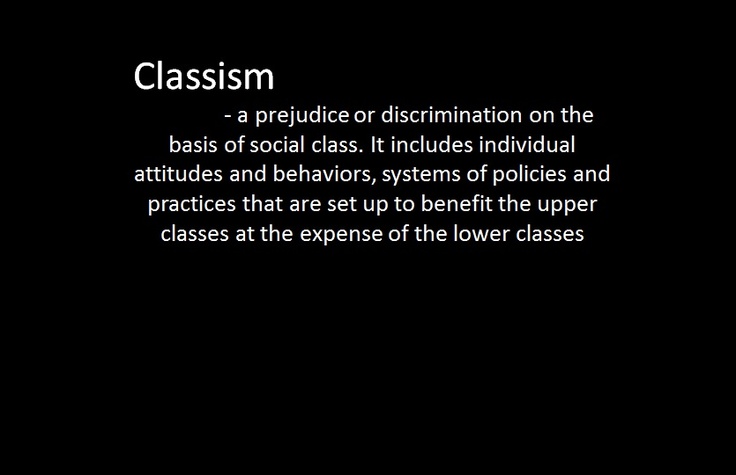The Bahá’í teachings present a transformative worldview, emphasizing the spiritual and social dimensions of human existence. At the heart of these teachings lies an earnest commitment to dismantling the barriers imposed by social class. The concept of social class is pervasive, often dictating individuals’ opportunities, aspirations, and relationships. However, Bahá’í principles advocate for a paradigm shift, urging humanity to transcend these societal confines in pursuit of genuine equality.
To comprehend the essence of this journey necessitates an introspective exploration of the underlying principles articulated within the Bahá’í faith. An elemental tenet of Bahá’í teachings is the unity of the human race. This foundational belief promotes the idea that all individuals are essentially equal; material distinctions should not dictate one’s worth or the potential for transformative contribution to society. Therefore, the pursuit of equality transcends mere rhetoric; it requires a committed lifestyle change.
Firstly, Bahá’í teachings highlight the significance of recognizing the inherent dignity of every person. The dignity bestowed upon individuals by their Creator is immutable. This notion implores individuals to disengage from the societal precepts that perpetuate the class distinction and instead cultivate an ethos of respect for all. It is through acknowledgment of each person’s intrinsic value that communities may flourish, dismantling the artificial hierarchies that restrain collective progress.
A crucial aspect of fostering such environments is the emphasis on education, which serves as a formidable equalizer. Bahá’í teachings advocate for universal education—not merely as a conduit for intellectual enrichment but as a fundamental human right that empowers individuals to rise above their socioeconomic conditions. This perspective shifts the focus from material wealth to the enrichment of the human spirit, fostering a culture where knowledge and character development flourish, unrestricted by class stratification.
Moreover, the Bahá’í approach to social class urges society to reevaluate its economic structures. The concept of wealth should not be seen through a lens of accumulation for self-aggrandizement but rather as a means for serving the community and alleviating poverty. This paradigm fosters an orientation towards altruism, where individuals leverage their resources to assist those less fortunate, reinforcing the belief that no person should be rendered destitute due to circumstances of birth. This call to action invites a reimagining of wealth as a collective responsibility, catalyzing a shift in societal values.
Furthermore, the Bahá’í framework of consultation promotes a collaborative approach to addressing social inequities. Rather than fostering competition stoked by class distinctions, consultation emphasizes power-sharing and collective decision-making. This process not only heightens collective ownership of community issues but also cultivates an environment where diverse perspectives contribute to holistic solutions. It champions the notion that wisdom is enhanced through the amalgamation of diverse viewpoints—a synergy far greater than an individual’s isolated perspective.
Another salient feature of Bahá’í teachings is the abandonment of prejudices. The path to enduring equality demands the relinquishment of biases, whether founded on class, race, gender, or any other arbitrary distinction. This transformative mindset encourages individuals to confront ingrained prejudices, thus facilitating a communal reintegration of trust and harmony. It posits that societal challenges such as racism, sexism, and economic disparity must be tackled collectively, as these issues are often interlinked and exacerbated by entrenched class systems.
Additionally, Bahá’í teachings assert that true equality is rooted in a commitment to service. Each individual is seen as a potential agent of change, capable of contributing positively to society. This service-oriented approach underpins community development frameworks, where individuals are encouraged to engage actively in public initiatives, fostering empathy and solidarity among disparate socio-economic groups. This collective effort enables the emergence of a more just society, where social class does not dictate the trajectory of one’s life.
While the path to achieving social equality is fraught with sociopolitical complexities, Bahá’í principles provide an enduring narrative of hope. The acknowledgment of the unity of humanity is not a distant ideal, but a burgeoning reality contingent upon concerted efforts to embrace the values of compassion and altruism. The very act of challenging entrenched class structures provides fertile ground for dialogue, fostering mutual respect and understanding.
As the world grapples with escalating inequalities compounded by economic crises and societal fragmentation, the Bahá’í teachings offer a compelling vision for a future rooted in equality. Embracing these principles necessitates a proactive examination of one’s societal roles, challenging personal biases, and committing to the collective well-being. The vision of a world unfettered by social class distinctions is both a noble aspiration and a practical imperative, urging humanity onward toward a more inclusive and equitable future.
Ultimately, the Bahá’í call for transcending social class heralds the potential for transformative societal evolution. To navigate this pathway requires courage and concerted effort but harbors the promise of a world wherein equality reigns supreme. Only through collective action, guided by the principles of Bahá’í teachings, can humanity aspire to realize its fullest potential—the embodiment of true equality.
